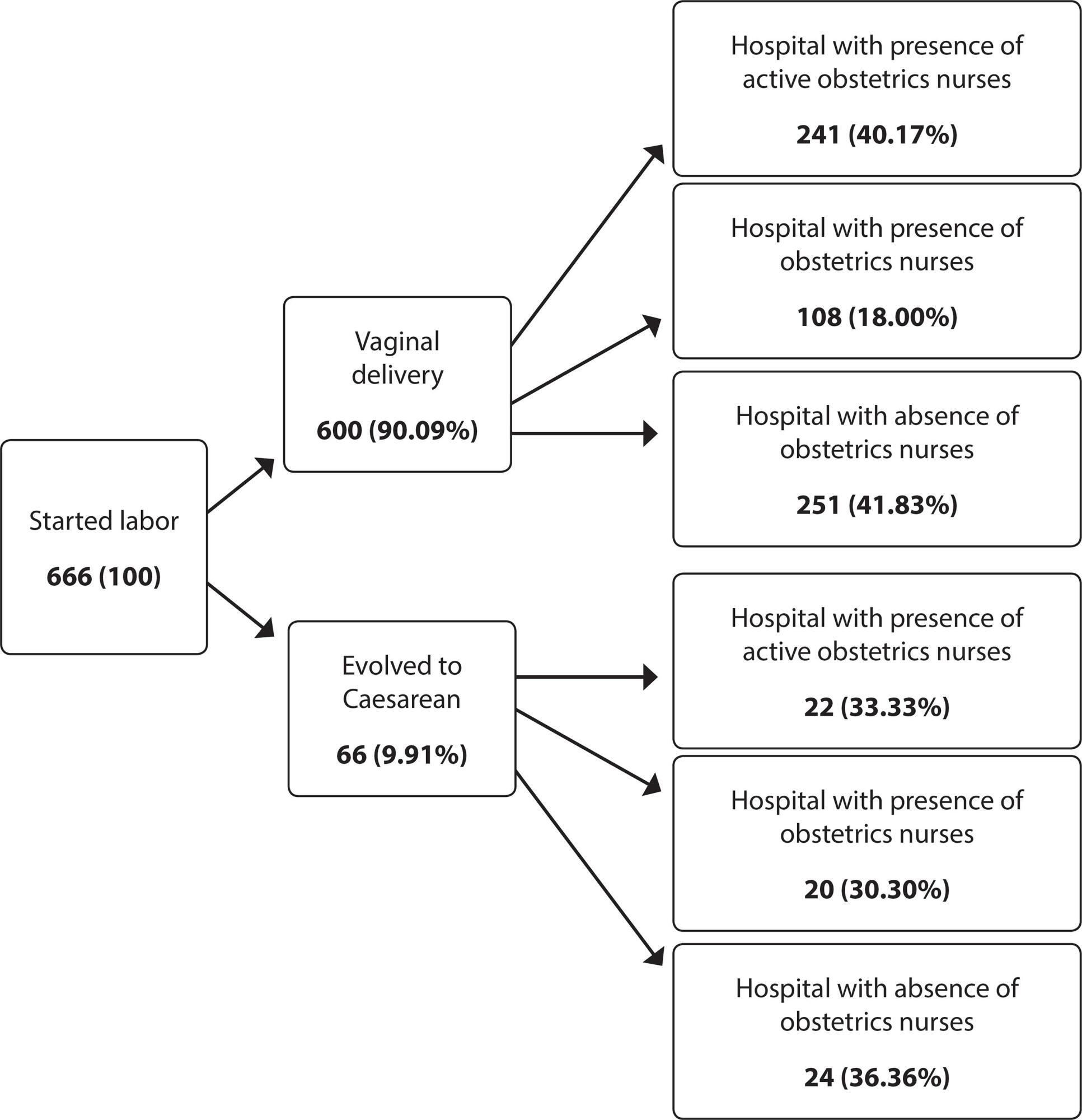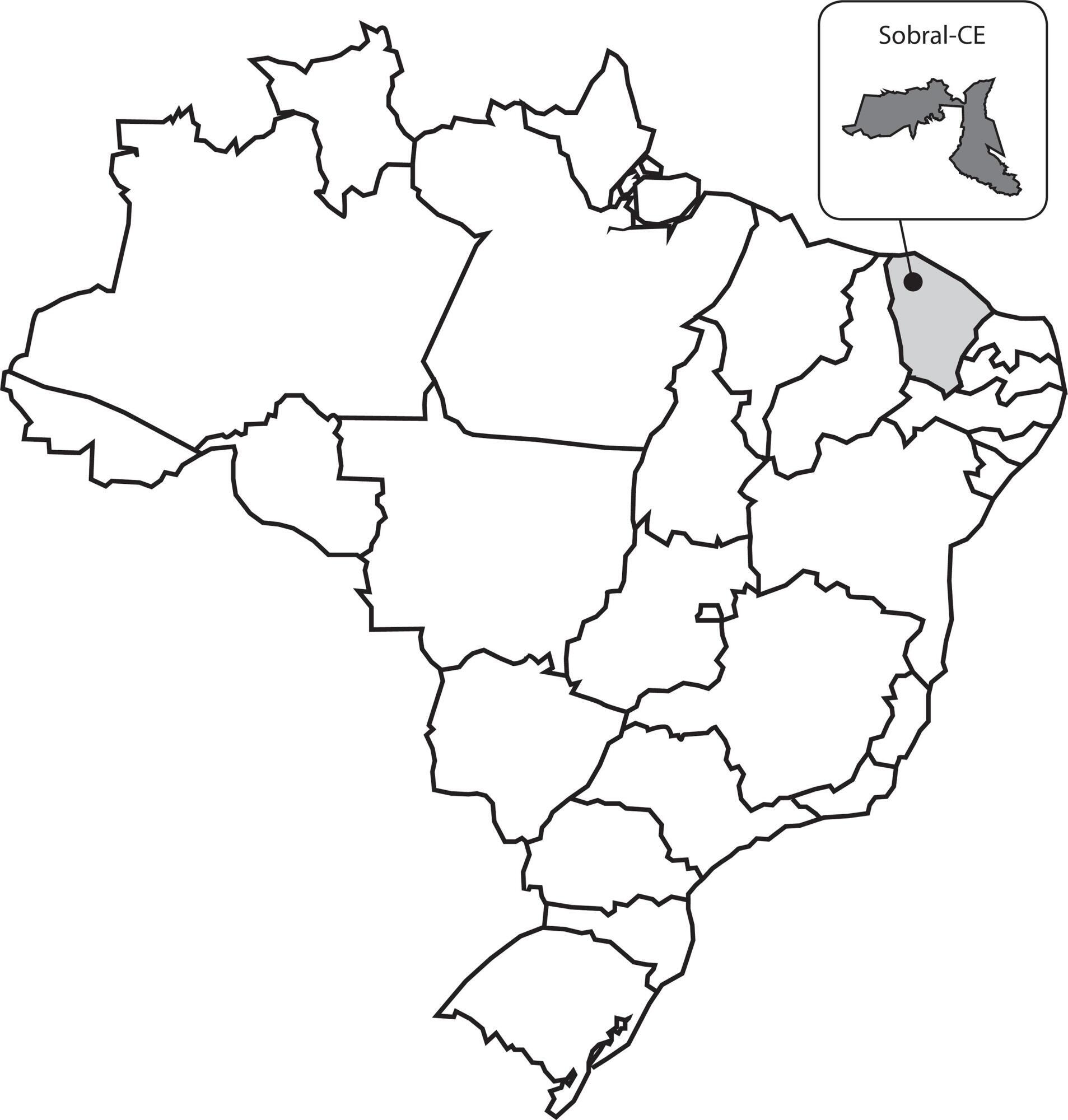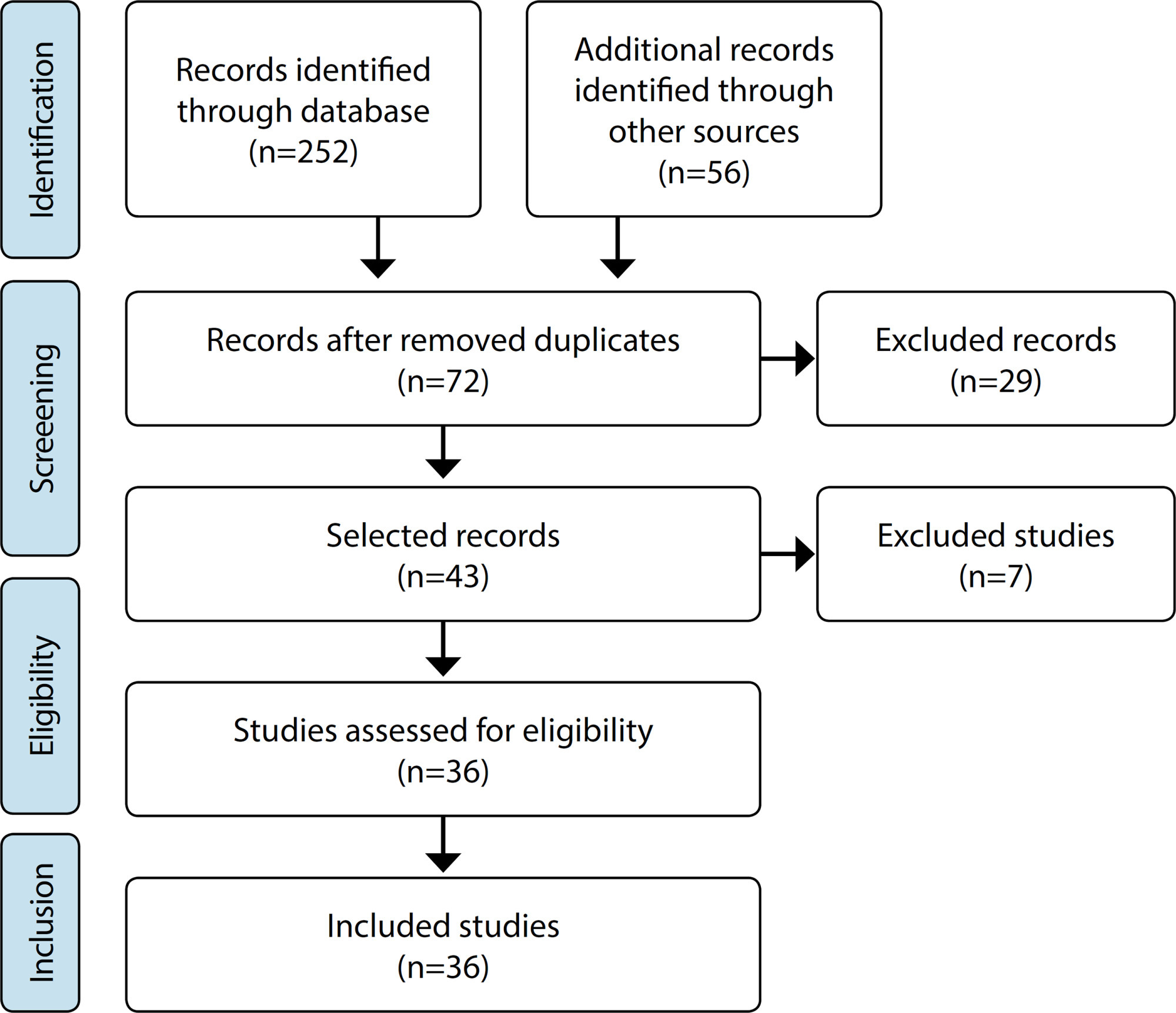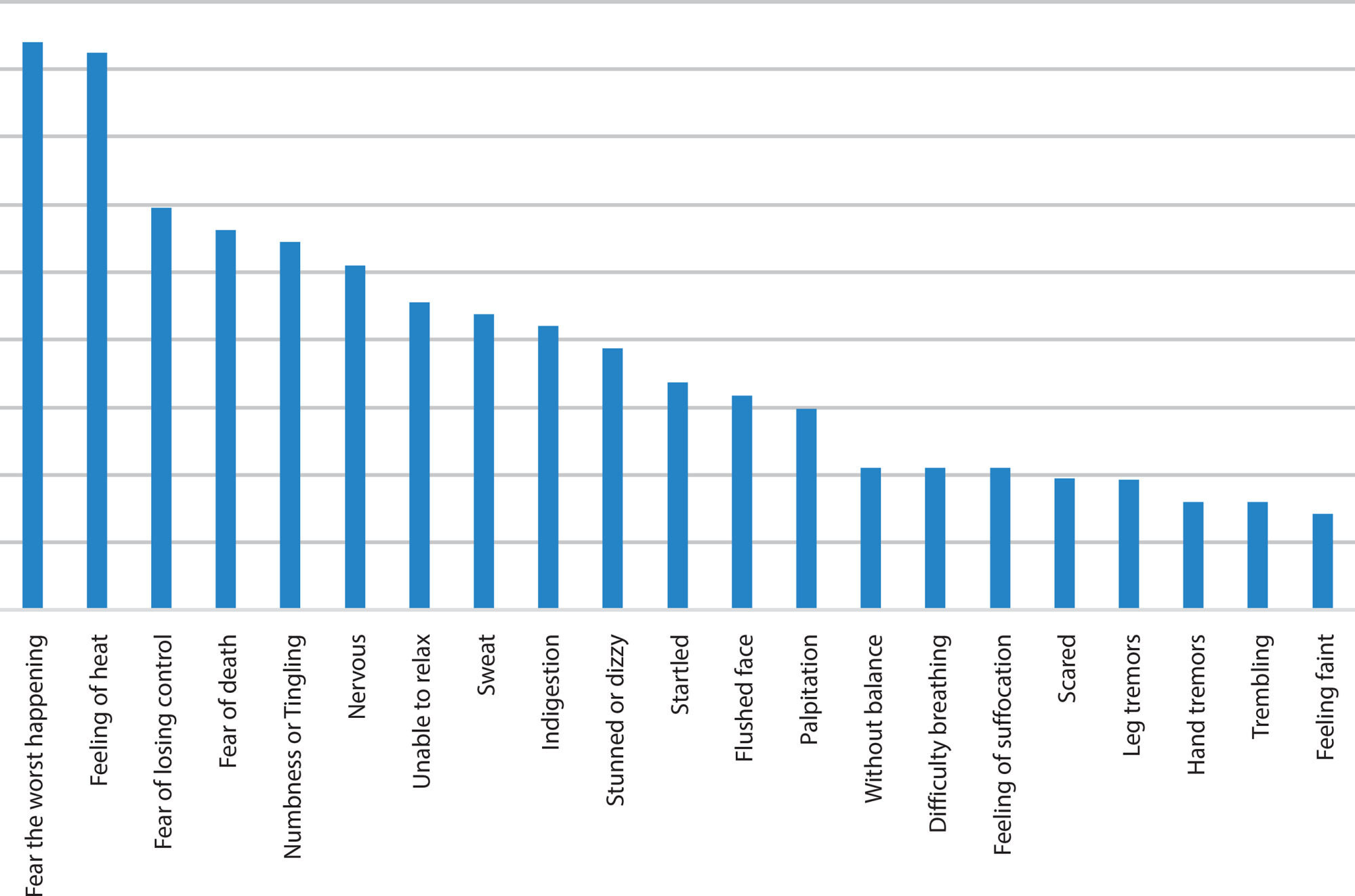-
REVIEW10-18-2022
Decision making by health professionals during COVID-19: an integrative review
Revista Brasileira de Enfermagem. 2022;75:e20210067
Abstract
REVIEWDecision making by health professionals during COVID-19: an integrative review
Revista Brasileira de Enfermagem. 2022;75:e20210067
DOI 10.1590/0034-7167-2021-0067
Views1See moreABSTRACT
Objective:
To analyze the scientific production on the decision making of health workers during the COVID-19 pandemic.
Methods:
Integrative review in the databases CINAHL, MEDLINE, Scopus, ScienceDirect, WoS, and BVS. Inclusion criteria: original articles available in full, in any language, related to the object investigated.
Results:
During this pandemic, health workers have been making decisions based on ethical/bioethical principles (utility, beneficence, non-maleficence, autonomy, justice, proportionality, flexibility, clinical prognosis, duration of the need, and fair health attention), values (solidarity, equality, equity, utilitarianism, relational autonomy, reliability, reciprocity, maximization of the benefits and resources, and prioritization of those in worse conditions), beliefs and personal motivation, protocols, directives, tools, algorithms, recommendations, and criteria.
Final considerations:
Decision making has never been so necessary as in this pandemic. This article is not a recipe for the professionals, since decision making is based on numerous factors. However, it provides them with a foundation that can be helpful in this difficult process.

-
ORIGINAL ARTICLE10-18-2022
Nursing professionals’ biosafety in confronting COVID-19
Revista Brasileira de Enfermagem. 2022;75:e20201104
Abstract
ORIGINAL ARTICLENursing professionals’ biosafety in confronting COVID-19
Revista Brasileira de Enfermagem. 2022;75:e20201104
DOI 10.1590/0034-7167-2020-1104
Views0See moreABSTRACT
Objective:
To investigate the nursing professionals’ biosecurity in confronting COVID-19.
Methods:
This is a Survey type study. Nursing professionals were invited via messaging apps, using self-applied data collection forms. The sample selection (n=693) was non-probabilistic. A descriptive data analysis was conducted.
Results:
considering the biosafety aspects in facing COVID-19, 79.0% of the participants had not received training or considered it insufficient, 69.3% reported the lack of personal protective equipment during work, and 81.8% did not feel safe with the internal flux adaptations for handling COVID-19 cases.
Conclusion:
Continuous and effective nursing team training and personal protective equipment availability are necessary, as well as internal flow adjustments for attending suspected or confirmed cases.
-
ORIGINAL ARTICLE10-18-2022
Crisis, work and nursing: an ethnographic narrative of the coronavirus pandemic in Primary Care in Spain
Revista Brasileira de Enfermagem. 2022;75:e20210069
Abstract
ORIGINAL ARTICLECrisis, work and nursing: an ethnographic narrative of the coronavirus pandemic in Primary Care in Spain
Revista Brasileira de Enfermagem. 2022;75:e20210069
DOI 10.1590/0034-7167-2021-0069
Views0See moreABSTRACT
Objective:
to narrate the experience of facing a long economic and political crisis and the experience of the arrival process of the coronavirus pandemic in a Spanish healthcare center.
Methods:
this is a descriptive qualitative study with ethnographic analysis, with data collection through interviews, participant observation and field diary records.
Results:
the immersion in the context allowed us to identify two axes of domain: “The crisis, work in the community and the territory in Primary Care”; “The inevitability of being a nurse in facing a health crisis”.
Final considerations:
the narrative portrays the ethics in field research, tensions and values of nursing work in crisis situations. Nurses’ experiences are presented in narratives of dissatisfaction and difficulties, but with the support of values related to guaranteeing assistance to users and cooperation and solidarity in the collective organization of workers to face the COVID-19 crisis.
-
ORIGINAL ARTICLE10-17-2022
Construction and validation of clinical scenarios for training informal caregivers of dependent persons
Revista Brasileira de Enfermagem. 2022;75(5):e20220140
Abstract
ORIGINAL ARTICLEConstruction and validation of clinical scenarios for training informal caregivers of dependent persons
Revista Brasileira de Enfermagem. 2022;75(5):e20220140
DOI 10.1590/0034-7167-2022-0140
Views0See moreABSTRACT
Objective:
To construct and validate three clinical scenarios for training dependent persons’ informal caregivers.
Methods:
Methodological study, conducted between January and August 2021, in a municipality in the northwest of the state of Paraná. It was developed in two stages: construction of scenarios; and content validation by experts (n = 12). To estimate the degree of agreement between the experts, the content validity index was used, and 80% was considered an acceptable rate of agreement.
Results:
The simulation scenarios proved appropriate, obtaining an average value of 91.6%. However, some adjustments were made in their organization pertaining clarity in the wording of guidelines, as suggested by the expert validators.
Conclusions:
The construction and validation of the clinical scenarios proved to be adequate and relevant for use in the training of informal caregivers of dependent persons.
-
ORIGINAL ARTICLE10-17-2022
Semantic validation of educational technology with caregivers of children and adolescents undergoing chemotherapy
Revista Brasileira de Enfermagem. 2022;75(5):e20220294
Abstract
ORIGINAL ARTICLESemantic validation of educational technology with caregivers of children and adolescents undergoing chemotherapy
Revista Brasileira de Enfermagem. 2022;75(5):e20220294
DOI 10.1590/0034-7167-2022-0294
Views0See moreABSTRACT
Objective:
Semantically validate an educational technology with the caregiver of children and adolescents undergoing chemotherapy.
Method:
Methodological study, with a quantitative approach, guided by the theoretical framework of psychometry, developed between March and April 2022, with nine caregivers of children and adolescents undergoing chemotherapy. Educational technology is a digital animation film about the pediatric chemotherapy treatment process, used as a tool for health education.
Results:
In the reliability assessment, the Intraclass Correlation Coefficient was 0.936 [95%CI 0.868-0.984] with p < 0.05 and Cronbach’s alpha of 0.943, demonstrating satisfactory internal consistency. Regarding the semantic analysis, the domains related to objectives, organization, language, appearance, and motivation showed an agreement rate above 80%.
Conclusion:
Educational technology showed satisfactory rates, proving to be a valid, reliable, and important instrument to be used by caregivers of children and adolescents undergoing chemotherapy.
-
ORIGINAL ARTICLE10-17-2022
Validation of the Brazilian Portuguese version of the Venous International Assessment Scale and proposal of revision
Revista Brasileira de Enfermagem. 2022;75(5):e20220100
Abstract
ORIGINAL ARTICLEValidation of the Brazilian Portuguese version of the Venous International Assessment Scale and proposal of revision
Revista Brasileira de Enfermagem. 2022;75(5):e20220100
DOI 10.1590/0034-7167-2022-0100
Views0See moreABSTRACT
Objective:
To validate the Brazilian Portuguese translation and analyze the cultural adaptation of the Venous International Assessment Scale.
Methods:
Observational study by employing the Delphi technique and an equivalence evaluation by experts. The results were analyzed using item scores and by content validity index calculations of item, scale, and universal agreement.
Results:
Three rounds of evaluation were necessary for consensus. Explanatory contents were incorporated into the original scale throughout the process, resulting in a new version: VIA Scale – Revised. This scale obtained a content validity index of 0.96 and a universal agreement of 0.78. In the cross-cultural adequacy analysis phase, a score of 0.77 was obtained. The majority (90.5%) of the participants judged the scale’s decision support property as positive.
Conclusion:
The VIA Scale was validated and culturally adapted to the Brazilian Portuguese language, resulting in the VIA Scale – Revised (VIA-R).
-
ORIGINAL ARTICLE10-17-2022
Serial album on Continuous Insulin Infusion System as an innovative educational technology in diabetes
Revista Brasileira de Enfermagem. 2022;75(5):e20210277
Abstract
ORIGINAL ARTICLESerial album on Continuous Insulin Infusion System as an innovative educational technology in diabetes
Revista Brasileira de Enfermagem. 2022;75(5):e20210277
DOI 10.1590/0034-7167-2021-0277
Views1See moreABSTRACT
Objective:
to build and validate a serial album content and appearance on insulin therapy using a Continuous Infusion System.
Method:
a methodological study, carried out in three stages in Fortaleza, Ceará, Brazil, from August to November 2018. The serial album construction and content and appearance validity were carried out by experts, and assessment, by the target audience. Content Validity Index and Concordance Index were calculated.
Results:
the judges considered the serial album content and appearance to be valid, which means that the material is suitable as an educational technology. Experts suggested adjustments, incorporated into the material for print production of the final version. The target audience also assessed the serial album positively.
Conclusion:
we realized that the serial album was considered an innovative educational technology in diabetes, valuable for promoting knowledge about Continuous Insulin Infusion System, with rich, updated content, combined with clarity, suitable format and explanatory illustrations.
-
10-17-2022
COVID-19 Vaccination Campaign: Fake News Infodemic
Revista Brasileira de Enfermagem. 2022;75(4):e750401
Abstract
COVID-19 Vaccination Campaign: Fake News Infodemic
Revista Brasileira de Enfermagem. 2022;75(4):e750401
DOI 10.1590/0034-7167.2022750401
Views0Globalization has reached the 21st century in the same harmony and dissemination as social networks, similar or correlated with the digital/virtual world as a source of information and advice on Brazilian and international public health. Therefore, people contaminated the cybernetic communication process with various information, true and/or false, causing what is known today as infodemic.Fake […]See more
-
ORIGINAL ARTICLE07-08-2020
Spirituality and religiousity in the experience of suffering, guilt, and death of the elderly with cancer
Revista Brasileira de Enfermagem. 2020;73:e20190034
Abstract
ORIGINAL ARTICLESpirituality and religiousity in the experience of suffering, guilt, and death of the elderly with cancer
Revista Brasileira de Enfermagem. 2020;73:e20190034
DOI 10.1590/0034-7167-2019-0034
Views0See moreABSTRACT
Objective:
to understand spirituality and religiosity in the experience of suffering, guilt, and death of the elderly with cancer.
Method:
qualitative research based on Viktor Frankl’s Existential Analysis. Twenty phenomenological interviews were conducted with people over 60 years old undergoing chemotherapy treatment at an oncology unit of a hospital in the city of Salvador, Bahia State, Brazil, between August and October 2018.
Results:
the following categories emerged: Experiences spirituality and religiosity in the face of the tragic triad and existential emptiness; Uses spirituality/religiosity as resilience strategies. After apprehension of ontic aspects, it was possible the ontological understanding of spirituality and religiosity in the face of suffering, guilt, and death experienced in the elderly with cancer’s daily life.
Final considerations:
spirituality and religiosity were understood as coping strategies used in the unstable experience of the elderly with cancer, providing comfort and resilience.
-
ORIGINAL ARTICLE09-16-2019
Depression, self-concept, future expectations and hope of people with HIV
Revista Brasileira de Enfermagem. 2019;72(5):1288-1294
Abstract
ORIGINAL ARTICLEDepression, self-concept, future expectations and hope of people with HIV
Revista Brasileira de Enfermagem. 2019;72(5):1288-1294
DOI 10.1590/0034-7167-2018-0730
Views0See moreABSTRACT
Objective:
To analyze conditions of depression, self-concept, future expectations and hope in people with HIV/AIDS.
Method:
Cross-sectional survey of 108 individuals living with HIV/AIDS, carried out in a reference hospital for the treatment of infectious diseases in Northeast Brazil. The following instruments were employed: sociodemographic data, and questionnaires for ascertaining participants’ emotions, including scales for self-concept, hope, depression (HAMD-D), and future expectations. Descriptive statistics using the following tests were performed: Mann–Whitney, Kruskal–Wallis, chi-square, and t-test—considered significant when p ≤ 0.05.
Results:
31.5% presented mild depression and 21.3% presented moderate depression; 63% reported difficulty in obtaining decent employment; 52.8% considered life a failure; 52.8% felt worthless. Fear, guilt and loneliness influenced self-concept (p ≤ 0.05). Loneliness influenced hope (p ≤ 0.05).
Conclusion:
It is necessary to raise the attention of nursing professionals and healthcare managers to the importance of providing health services that consider the mental health of people with HIV/AIDS, contributing to treatment adherence and well-being.
-
ORIGINAL ARTICLE10-05-2020
Factors associated with the performance of episiotomy
Revista Brasileira de Enfermagem. 2020;73:e20190899
Abstract
ORIGINAL ARTICLEFactors associated with the performance of episiotomy
Revista Brasileira de Enfermagem. 2020;73:e20190899
DOI 10.1590/0034-7167-2019-0899
Views0See moreABSTRACT
Objective:
To analyze the factors associated with the performance of episiotomy.
Methods:
Cross-sectional study, developed with data from the research “Born in Belo Horizonte: Labor and birth survey, “conducted with 577 women who had their children via vaginal birth. In order to verify the magnitude of the association between episiotomy and its possible determinants, logistic regression models were constructed to estimate the odds ratio.
Results:
Episiotomy was performed in 26.34% of women, and 59.21% knew they had been subjected to it. We observed that younger women, primiparous women, women assisted by a professional other than the obstetric nurse and women who had their babies in a private hospital have an increased chance of being submitted to this procedure.
Conclusion:
Considering the rates of episiotomy, this study highlights the need for the absolute contraindication to indiscriminate performing it.
-
ORIGINAL ARTICLE12-13-2019
Obstetric Nursing in best practices of labor and delivery care
Revista Brasileira de Enfermagem. 2019;72:235-242
Abstract
ORIGINAL ARTICLEObstetric Nursing in best practices of labor and delivery care
Revista Brasileira de Enfermagem. 2019;72:235-242
DOI 10.1590/0034-7167-2018-0561
Views0See moreABSTRACT
Objective:
to evaluate the association of Obstetric Nursing in the best practices of delivery and birth care in maternity hospitals.
Method:
a cross-sectional study, with 666 women selected for delivery. Parturition obstetric practices performed by professionals were categorized into: clearly useful practices that should be encouraged, practices that are clearly harmful or ineffective and that should be eliminated and practices used inappropriately at the time of parturition.
Results:
clearly useful practices were used in greater proportions in the hospitals that had Obstetric Nursing working, while clearly harmful practices and those used inappropriately were practiced in smaller proportions in hospitals that had Obstetric Nursing, both with statistical difference.
Conclusion:
institutions with Obstetric Nursing adopt better practices of delivery and birth care, based on scientific evidence, when compared to those that do not act.

-
ORIGINAL ARTICLE09-16-2019
Temporal trend of leprosy in a region of high endemicity in the Brazilian Northeast
Revista Brasileira de Enfermagem. 2019;72(5):1356-1362
Abstract
ORIGINAL ARTICLETemporal trend of leprosy in a region of high endemicity in the Brazilian Northeast
Revista Brasileira de Enfermagem. 2019;72(5):1356-1362
DOI 10.1590/0034-7167-2018-0682
Views0See moreABSTRACT
Objective:
to analyze the temporal trend and epidemiological patterns of leprosy indicators in Sobral, a municipality countryside of the state of Ceará, from 2001 to 2016.
Method:
a time series study based on data from the Department of Informatics of the Unified Health System. The time trend analysis was performed using the join point regression model.
Results:
There were 2,220 new cases of leprosy in Sobral from 2001 to 2016. Of these, 158 (7.2%) in children younger than 15 years of age, the proportion of new male cases was 52.8% (1,162), cases with grade 2 were 7.0% (156), and proportion of cases diagnosed by contact examination 5.7% (126).
Final considerations:
leprosy remains hyperendemic in adults and children, demonstrating the character of neglected disease. Analysis of the temporal trend allowed to verify that the instability in the detection coefficients, reflect operational problems in the organization of the services

-
REVIEW08-20-2021
Assessment of patient safety culture in Brazilian hospitals through HSOPSC: a scoping review
Revista Brasileira de Enfermagem. 2021;74(6):e20201315
Abstract
REVIEWAssessment of patient safety culture in Brazilian hospitals through HSOPSC: a scoping review
Revista Brasileira de Enfermagem. 2021;74(6):e20201315
DOI 10.1590/0034-7167-2020-1315
Views0See moreABSTRACT
Objectives:
to describe, from literature, the characteristics of patient safety culture in Brazilian hospitals that applied the Hospital Survey on Patient Safety Culture.
Methods:
this is a scoping review. A search was performed in the databases LILACS, PubMed, SciELO, CINAHL, Web of Science, Scopus and in the CAPES Dissertations and Theses Database in September and October 2020.
Results:
thirty-six studies were identified. Nine studies identified strengthened areas such as: “teamwork within the units”, “expectations of supervisor/boss and actions promoting safety”, “organizational learning”, “support of hospital management for patient safety” and “frequency of report of events”. As a critical area, the dimension “non-punitive response to error” was evidenced in 30 of 36 studies.
Conclusions:
the identification of areas of strength and critical areas of safety culture is relevant to encourage improvement of patient safety problems in an institution.

-
ORIGINAL ARTICLE03-07-2022
Adaptation and validation of the Advanced Practice Nursing Competency Assessment Instrument
Revista Brasileira de Enfermagem. 2022;75(5):e20210582
Abstract
ORIGINAL ARTICLEAdaptation and validation of the Advanced Practice Nursing Competency Assessment Instrument
Revista Brasileira de Enfermagem. 2022;75(5):e20210582
DOI 10.1590/0034-7167-2021-0582
Views0See moreABSTRACT
Objective:
To adapt and validate the content of the Advanced Practice Nursing Competency Assessment Instrument (APNCAI) to Brazilian culture.
Methods:
This is a methodological study that followed the stages of translation, synthesis, back translation, evaluation by a committee of five specialists, pre-test with 31 nurses, and evaluation by the author of the original instrument. The Content Validity Index (minimum 0.90) and the modified Kappa (minimum 0.74) were calculated to evaluate the content.
Result:
In the first round of content evaluation, 18 items had to be altered because they did not reach the minimum values established. Three items have not reached a consensus in the second round and had to be sent to the author of the original version. In the pre-test, 13 items were returned to the specialists because they suffered content changes.
Conclusion:
The Advanced Practice Nursing Competency Assessment Instrument (APNCAI) – Brazilian version was cross-culturally adapted, and its content was validated.
-
ORIGINAL ARTICLE09-21-2020
Anxiety and depression in informal caregivers of dependent elderly people: an analytical study
Revista Brasileira de Enfermagem. 2020;73:e20190851
Abstract
ORIGINAL ARTICLEAnxiety and depression in informal caregivers of dependent elderly people: an analytical study
Revista Brasileira de Enfermagem. 2020;73:e20190851
DOI 10.1590/0034-7167-2019-0851
Views0See moreABSTRACT
Objective:
To analyze the symptoms of anxiety and depression in informal caregivers of dependent elderly at home.
Methods:
Analytical, cross-sectional study conducted in the city of Teresina (PI), with informal caregivers of dependent elderly people. Data collection took place from November 2017 to February 2018, using a characterization form for the dependent elderly and their caregiver, Beck’s Anxiety Inventory (BAI) and Beck’s Depression Inventory (BDI). The forward linear regression model was used to identify the predictive variables of anxiety and depression.
Results:
It was found that 18.4% of caregivers had symptoms of depression; and 14%, moderate to severe anxiety. There was a correlation between anxiety and depression (p = 0.000).
Conclusion:
The findings of this study make it possible to assess anxiety and depression in caregivers of dependent elderly people, making it possible, through these parameters, to view the profile and care demands of this population.

Search
Search in:
Nuvem de Tags
Adolescente (85) Atenção Primária à Saúde (239) COVID-19 (91) Criança (91) Cuidados de Enfermagem (269) Educação em Enfermagem (151) Educação em Saúde (139) Enfermagem (930) Enfermagem Pediátrica (86) Estudantes de Enfermagem (77) Estudos de Validação (131) Família (87) Idoso (208) Promoção da Saúde (99) Qualidade de Vida (104) Saúde do Trabalhador (86) Saúde Mental (145) Saúde Pública (82) Segurança do Paciente (150) Tecnologia Educacional (100)



